
Error: No layouts found
MAJOR NIH RESEARCH AWARDS
Einstein received $174 million in grants from the National Institutes of Health in fiscal year 2017—the highest annual total in the College of Medicine’s history.*
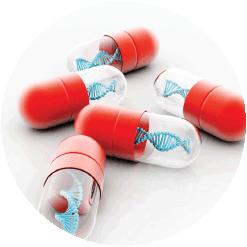
Seeking Anti-Aging Therapies
Scientists now believe that the Fountain of Youth flows from our genes, or at least from the genes of people who live healthy lives to age 100 or later. To discover what’s special about the genes of these centenarians—and apply that knowledge to extend the healthy lives of the rest of us—the NIH has awarded Einstein and the Scripps Research Institute a five-year, $9 million grant. Rather than study age-related diseases, researchers will focus on genetic differences between healthy centenarians and people with no family history of extreme longevity, looking for rare genetic variants that account for the centenarians’ long lives. After pinpointing beneficial effects caused by these variants, researchers can then develop drugs that mimic those effects. The study’s principal investigator is Jan Vijg, Ph.D., professor and chair of genetics and the Lola and Saul Kramer Chair in Molecular Genetics at Einstein.
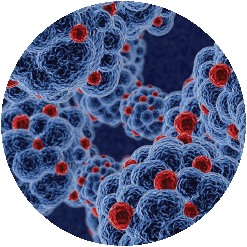
New AIDS Research Center
The NIH has awarded researchers at Einstein, the Rockefeller University, and the City University of New York Graduate School of Public Health and Health Policy a $7.5 million grant for the Center for AIDS Research. The new center, known as ERC-CFAR, is one of 19 CFARs nationwide that are funded as part of an NIH-coordinated effort to support multidisciplinary research to reduce the burden of HIV in the United States and abroad. ERC-CFAR brings together more than 150 investigators from the three New York City institutions and is directed by Harris Goldstein, M.D., professor of pediatrics and of microbiology & immunology at Einstein. New York City is considered an epicenter of HIV infection. More than 114,000 New Yorkers are living with HIV/AIDS, which is the third leading cause of death for NYC residents ages 35 to 54.
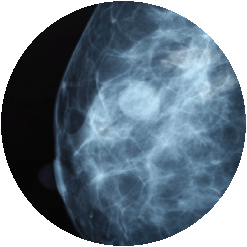
Detecting a Breast Cancer Precursor
Ductal carcinoma in situ (DCIS)—increasingly detected thanks to widespread use of screening mammography—is a precursor of invasive breast cancer (IBC). When untreated DCIS patients are followed for up to 30 years, between 14 and 53 percent of them develop IBC. Einstein researchers have received a five-year, $6.4 million NIH grant to identify molecular markers that can be used for early detection of those DCIS patients at risk for developing IBC. Such markers might also improve treatment for women found to be at high risk for IBC—by leading, for example, to novel agents that target molecular changes associated with invasive-disease development. The principal investigators are Thomas Rohan, M.B.B.S., Ph.D., D.H.Sc., professor and chair of epidemiology & population health and the Harold and Muriel Block Chair in Epidemiology and Population Health, and Olivier Loudig, Ph.D., of Hackensack University Medical Center.
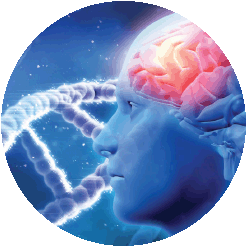
Gene Networks against Alzheimer’s
In an effort to find effective drugs against Alzheimer’s, Einstein researchers received a five-year, $6.3 million NIH grant to identify networks of genes in healthy centenarians that protect them against dementia. Co-principal investigators Nir Barzilai, M.D., and Zhengdong Zhang, Ph.D., will tap into the wealth of genomic data generated from Einstein’s two existing longitudinal cohorts on aging, the Longevity Genes Project and the LonGenity research study. The researchers will look for networks of genes in these individuals that may combine to protect against genetic variants that would otherwise cause disease. Finding how these gene networks protect against Alzheimer’s may lead to drugs that duplicate their effects. Dr. Barzilai is professor of medicine and of genetics and Rennert Chair in Aging Research at Einstein and attending physician in endocrinology, diabetes & metabolism at Montefiore. Dr. Zhang is an associate professor of genetics.

Fighting Alzheimer’s with Diet
Inflammation overactivates the immune system and contributes to various diseases, including diabetes, cancer and Alzheimer’s disease. Research suggests that the “Western diet”—high in fat, sugar and processed foods—may promote inflammation. The NIH has awarded Einstein nutrition scientist Yasmin Mossavar-Rahmani, Ph.D., R.D., associate professor of epidemiology & population health, a five-year, $4 million grant to see if a diet rich in foods with anti-inflammatory properties can reduce cognitive decline and risk for developing Alzheimer’s. More than 300 Bronx residents ages 40 to 65 will be divided into two groups; half will follow the anti-inflammatory diet, the other half their regular diet. Researchers will periodically assess participants’ cognitive function during the 27-month study. The anti-inflammatory diet will include whole grains, fish, lentils, nuts, beans, herbs and spices and was designed to appeal to a multicultural population.

Marijuana vs. Opioids for Chronic Pain
The NIH has awarded researchers at Albert Einstein College of Medicine and Montefiore Health System a five-year, $3.8 million grant to conduct the first long-term trial assessing whether medical marijuana reduces opioid use among adults with chronic pain, including those who are infected with HIV. Chronic pain and resulting opioid use are common among people who have HIV. Given the dangers of opioid use and misuse, both doctors and patients are seeking safe and effective alternatives. The researchers will enroll 250 HIV-positive and HIV-negative adults with chronic pain who use opioids and who have received certification from their physicians to use medical marijuana. The principal investigator on the grant is Chinazo Cunningham, M.D., M.S., associate chief of general internal medicine in the department of medicine at Einstein and Montefiore.

Better Cognitive-Impairment Detection
Cognitive impairment related to dementia is underdiagnosed, even though tests are available for assessing it. The missed diagnoses—especially common among African Americans and Hispanics—cause delays in providing vital support services. Now, the NIH has awarded Joe Verghese, M.B.B.S., a five-year, $3.8 million grant to develop and validate a low-cost, five-minute cognitive screening test that can be readily administered by nonclinicians after minimal training. The test will be accompanied by a decision tree aimed at helping providers identify and care for multi-ethnic primary care populations at high risk for developing dementia. It will be assessed at Montefiore primary care clinics. Dr. Verghese is a professor in the Saul R. Korey Department of Neurology, the Murray D. Gross Memorial Faculty Scholar in Gerontology and director of the Montefiore Einstein Center for the Aging Brain.
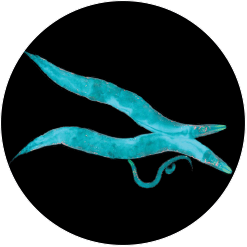
Roundworms and Alzheimer’s
Humans aren’t the only organisms faced with age-related declines in thinking ability and memory. The same problems afflict the roundworm C. elegans. The NIH has awarded Einstein scientists a five-year, $3.7 million grant to seek new Alzheimer’s treatments by combining roundworm and human research. Using tools for studying memory in worms and identifying gene-expression changes in worm neurons, the researchers will identify genes that change with age and are risk factors for Alzheimer’s. They’ll combine those results with findings from human genome-wide association studies, which indicate that changes in gene regulation cause cases of heightened genetic risk for Alzheimer’s. This approach will identify gene regulatory networks shared by humans and worms and may provide new targets for Alzheimer’s drugs. The co-principal investigators are Yousin Suh, Ph.D., professor of genetics at Einstein, and Coleen Murphy, Ph.D., of Princeton University.
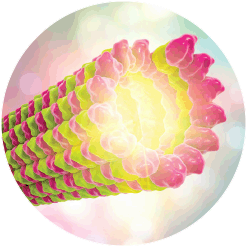
Mapping a Viral Infection Highway
Herpes simplex virus 1 (HSV-1), the virus responsible for oral herpes, infects about half the world’s population. HSV-1 infects neurons of cranial nerves, traveling up their axons to multiply in their nerve bodies. Newly made HSV-1 then travels back down the axon to be released into the synapse. HSV-1 is thought to hijack the cell’s microtubule network to travel back and forth in the axon, but how it does so is unclear. The National Institute of Allergy and Infectious Diseases has awarded Duncan W. Wilson, Ph.D., a five-year, $3.5 million grant to study UL36p, an HSV-1 protein that appears to attach the virus to microtubules via the motor proteins kinesin and dynein. He will explore how UL36p helps HSV-1 move through axons during infection. Dr. Wilson is a professor of developmental and molecular biology.
*This excludes supplemental stimulus funding distributed as part of the American Recovery and Reinvestment Act of 2009.